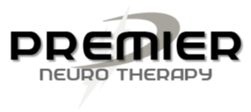How Can Neuro Therapy Help With Neuropathy?
|
If you’re on this page, I don’t have to tell you that neuropathy can feel pretty frustrating.
Neuropathy affects our ability to stay active, sleep, compete, and sense the world around us. It’s amazing what simple tasks can be affected when it becomes difficult to sense where our bodies are in space and coordinate movement. It’s even more frustrating when it feels like nothing (rest, ice, heat, massage and even in-home exercises) is helping the neuropathy start to feel better. |
In most cases, the people who are visiting this page fall into 1 of 3 categories:

You take pride in maintaining an active lifestyle (or used to), but the onset of neuropathy is causing you to take a break. A friend, family member (or maybe even something on social media) told you Neuro Therapy is a faster way to get better and back to performing at a high level.

You’ve had neuropathy and associated limited movement for months (or even years) and are starting to wonder why it’s not getting better. You’ve tried everything that doctors recommended to alleviate it, with little success. At this point, they may have even told you that you’ll just have to live with it. But if there’s something out there that can help you minimize the problem, you'd like to learn about it.

You’ve been told by a doctor that surgery will be required to fix the neuropathy, and going under the knife is the last thing you want to do. You're worried it might not work or the recovery process will be longer than expected, and you're exploring alternatives to see if there’s a way to avoid surgery all together.
If any of these are you, it’s likely that you’ve started to put a few pieces together.
Maybe you’ve felt like the neuropathy is starting to make you feel a little tight in other areas around the affected body part.
Or feel yourself compensating or moving differently (ever feel yourself trying to get other areas of the body take on the work that the part of your body affected by neuropathy would normally be responsible for?)
It could even feel like certain muscles just don’t want to “activate” the way they used to.
If you could only loosen up a few muscles, get a little more blood flow to them, or start activating them again, you're hopeful the neuropathy would start to feel a little better and allow for more movement and mobility.
But it seems like no matter what you do, the symptoms stay exactly the same (and sometimes even get worse).
All of these feelings – tightness, moving differently (compensation patterns), muscle activation, and “flare ups” are driven by the nervous system.
When you have neuropathy, the nervous system starts to use the affected body part (and even the muscles around it) differently.
Unfortunately, this only compounds the problem. In order to reduce stress on the affected nerves (and make it feel better), the muscles around it must absorb as much force as possible.
When those muscles around the neuropathic symptoms absorb force efficiently, the nerves won't take on as much stress, and will start to feel better.
These muscle activation patterns are driven by the nervous system, which drives movement.
If those sequences aren't firing properly, the recovery process can be difficult, range of motion becomes limited, and pain signals actually amplify.
During Neuro Therapy, we “tap in” to the nervous system using electricity in order to determine where muscles aren’t activating properly... consider these your "weakest links."
The muscles that we find are responsible for both the original onset of the neuropathy (when they stopped absorbing force properly, it's possible that nerves started absorbing it instead, which may have led to the neuropathy symptoms) AND why your neuropathy seems to be getting worse and worse.
Unfortunately, without the proper care, it can be a compounding problem.
Once we identify those muscles, we’re able to precisely target those areas and re-train the nervous system to utilize the muscles properly and bring blood flow to the area.
When the muscles start to work properly again, the nerves affected by neuropathy can start to function normally (and with much less pain).
But you don’t have to take my word for it – I understand that Neuro Therapy is new and what I’m saying is a little “outside the box.” I thought the same thing when I was introduced to the process 5 years ago.
For that reason, I want to help you gather all the information needed to determine if Neuro is the right fit for your neuropathy.
I want you to learn about Neuro Therapy and experience what it can do for you without any risk or obligation.
Maybe you’ve felt like the neuropathy is starting to make you feel a little tight in other areas around the affected body part.
Or feel yourself compensating or moving differently (ever feel yourself trying to get other areas of the body take on the work that the part of your body affected by neuropathy would normally be responsible for?)
It could even feel like certain muscles just don’t want to “activate” the way they used to.
If you could only loosen up a few muscles, get a little more blood flow to them, or start activating them again, you're hopeful the neuropathy would start to feel a little better and allow for more movement and mobility.
But it seems like no matter what you do, the symptoms stay exactly the same (and sometimes even get worse).
All of these feelings – tightness, moving differently (compensation patterns), muscle activation, and “flare ups” are driven by the nervous system.
When you have neuropathy, the nervous system starts to use the affected body part (and even the muscles around it) differently.
Unfortunately, this only compounds the problem. In order to reduce stress on the affected nerves (and make it feel better), the muscles around it must absorb as much force as possible.
When those muscles around the neuropathic symptoms absorb force efficiently, the nerves won't take on as much stress, and will start to feel better.
These muscle activation patterns are driven by the nervous system, which drives movement.
If those sequences aren't firing properly, the recovery process can be difficult, range of motion becomes limited, and pain signals actually amplify.
During Neuro Therapy, we “tap in” to the nervous system using electricity in order to determine where muscles aren’t activating properly... consider these your "weakest links."
The muscles that we find are responsible for both the original onset of the neuropathy (when they stopped absorbing force properly, it's possible that nerves started absorbing it instead, which may have led to the neuropathy symptoms) AND why your neuropathy seems to be getting worse and worse.
Unfortunately, without the proper care, it can be a compounding problem.
Once we identify those muscles, we’re able to precisely target those areas and re-train the nervous system to utilize the muscles properly and bring blood flow to the area.
When the muscles start to work properly again, the nerves affected by neuropathy can start to function normally (and with much less pain).
But you don’t have to take my word for it – I understand that Neuro Therapy is new and what I’m saying is a little “outside the box.” I thought the same thing when I was introduced to the process 5 years ago.
For that reason, I want to help you gather all the information needed to determine if Neuro is the right fit for your neuropathy.
I want you to learn about Neuro Therapy and experience what it can do for you without any risk or obligation.
So here's what I do for prospective clients. I offer a free, 1 on 1, 90 minute Neuro Therapy session. You'll get to go through a full Neuro Therapy session from beginning to end and have plenty of time to ask questions.
During the session, you can expect to learn the following about your neuropathy:

What muscles are not activating properly and contributing to your neuropathy

What movement patterns and ranges of motion are contributing to your neuropathy
What movement patterns and ranges of motion are contributing to your neuropathy

How we can work together to fix it
Who knows, you might even experience a little bit of relief or increase in range of motion.
By the end, you'll have all the information you need to make a decision on whether Neuro is the right fit for you.
Sound like something that's worth trying? Just click the button below and fill out the 35 second form to apply. After reviewing your application, we’ll give you a call to find a date a time that work best for you.
By the end, you'll have all the information you need to make a decision on whether Neuro is the right fit for you.
Sound like something that's worth trying? Just click the button below and fill out the 35 second form to apply. After reviewing your application, we’ll give you a call to find a date a time that work best for you.
If you’re still not quite sure about scheduling and would rather speak to a member of my team on the phone first, you can click here instead:
Want to read more about Neuro Therapy and Neuropathy? Click here to read one of our blog posts on the topic:
https://www.premierneurotherapy.com/blog/neuro-therapy-and-neuropathy
https://www.premierneurotherapy.com/blog/neuro-therapy-and-neuropathy


